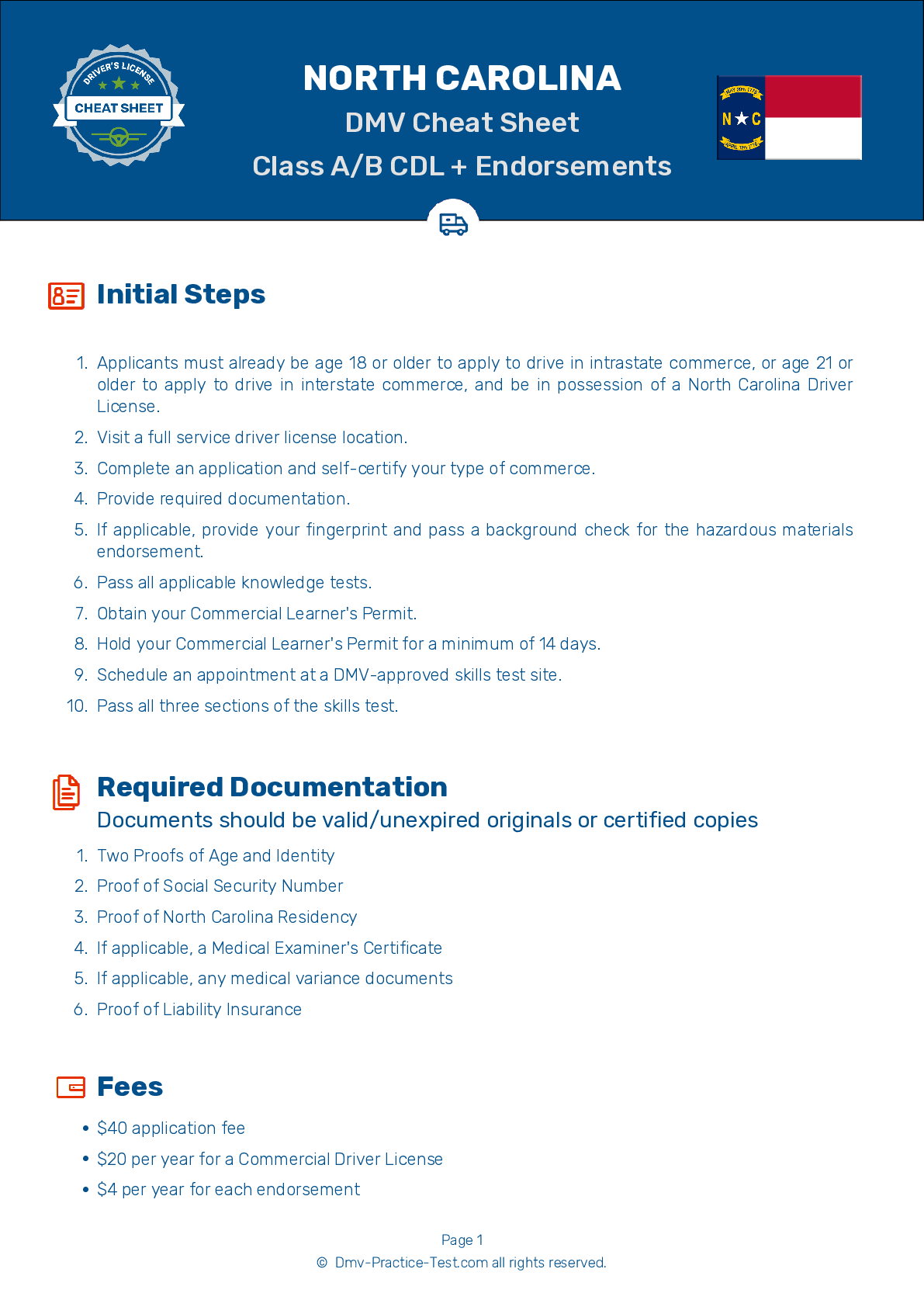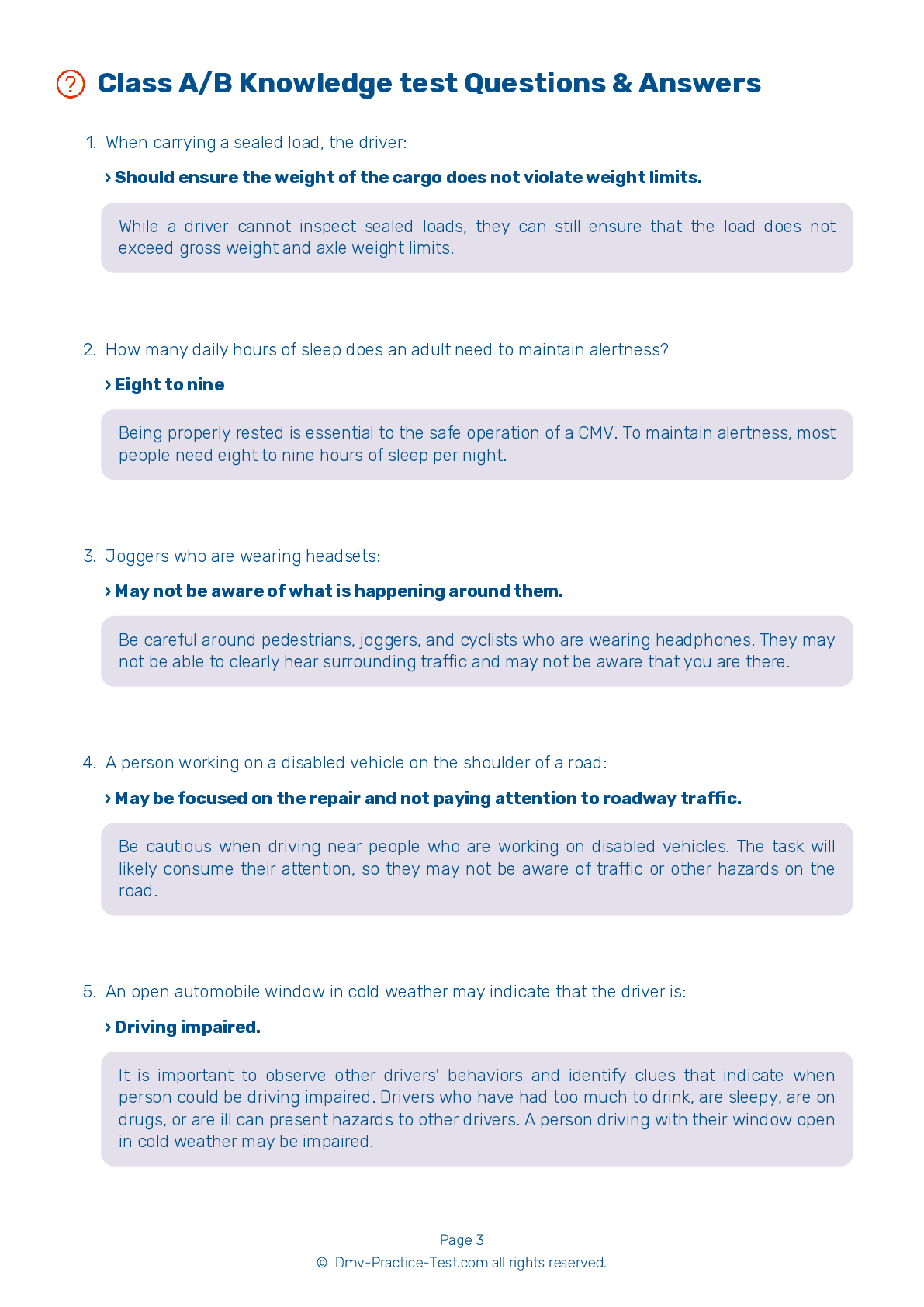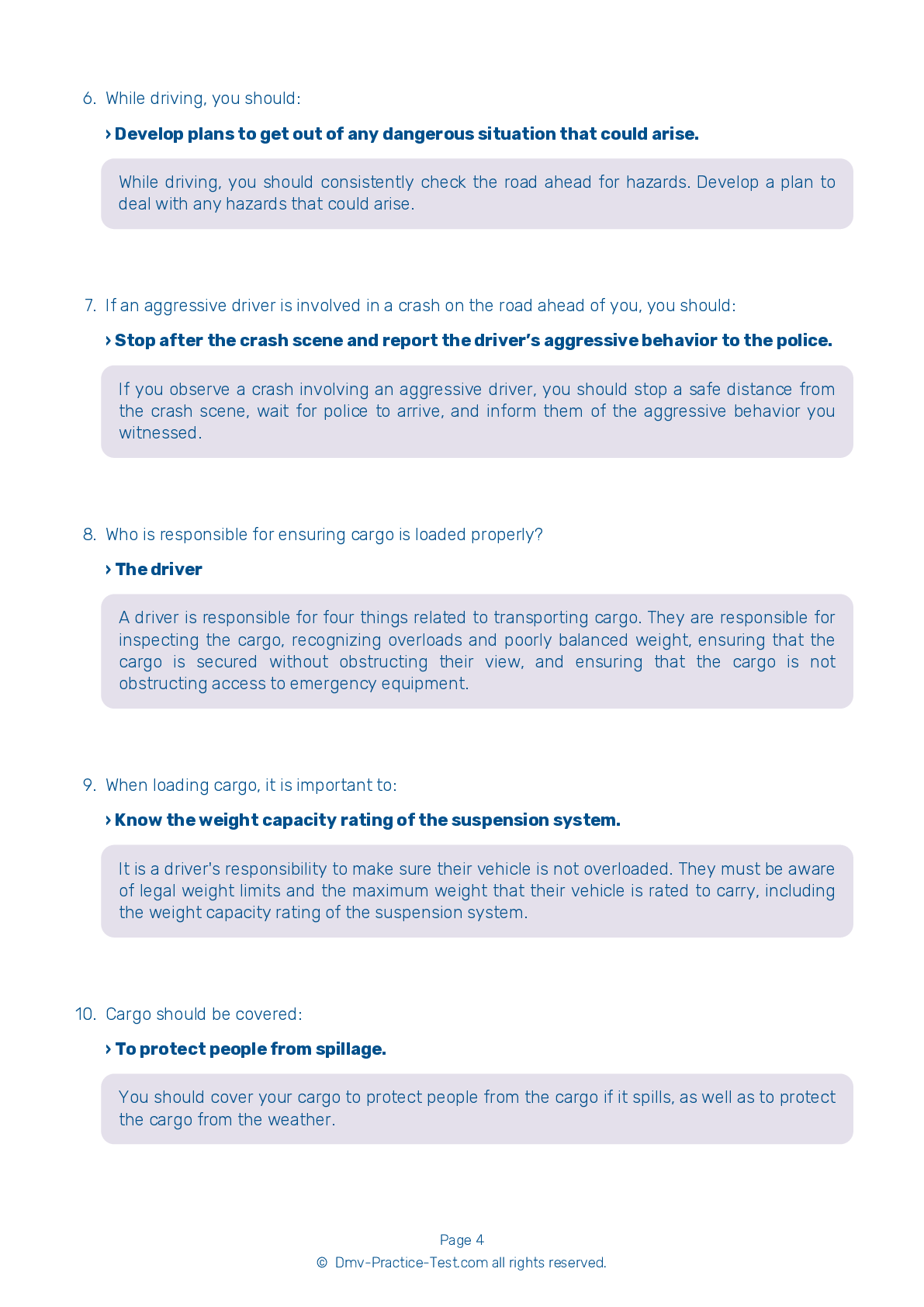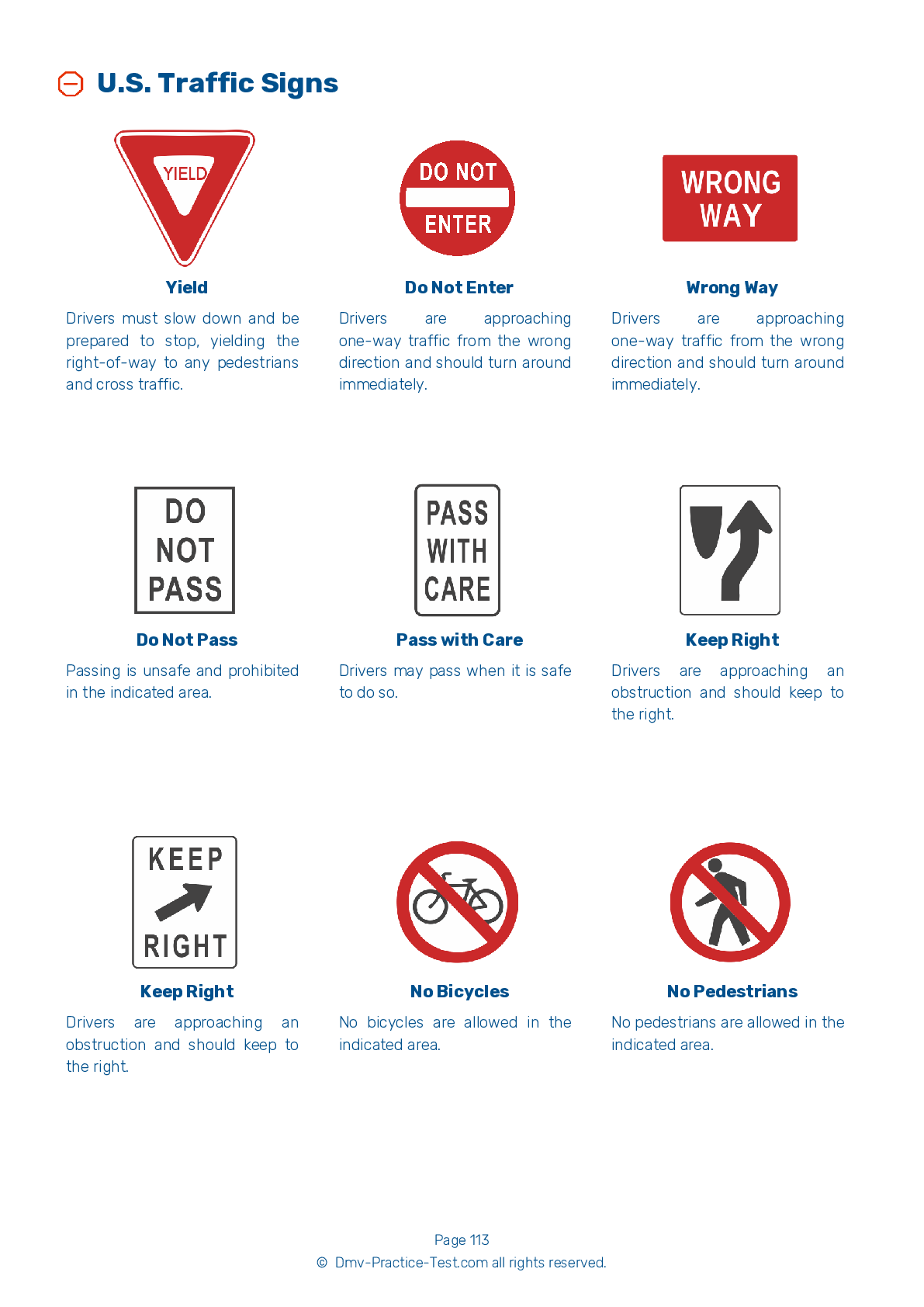Class B Driving Test | North Carolina 2026 #1 Page 2 of 7
Train for FREE online with our North Carolina class B license test. The official exam test consists of several obligatory parts, with all of them checking your knowledge of different blocks of road rules. If you need to obtain a NC CDL class B permit in 2026, practice as much as possible. Free sample tests published on our website will help you check and improve your knowledge and boost your grades. Please bear in mind that CDL class B requirements may vary from state to state.
8 . A one-way check valve:
A one-way check valve is required to be between an air compressor and the first main reservoir. This valve prevents air from escaping the system if the air compressor develops a leak.
9 . As part of the vehicle inspection test, you will be asked to:
During the vehicle inspection test, you must touch or point to each item that you are checking and explain to the examiner what you are inspecting and why.
10 . When driving a vehicle equipped with an Anti-Lock Braking System (ABS), you should:
When driving a tractor-trailer combination that is equipped with an Anti-Lock Braking System (ABS), you should brake in the same manner that you would if the vehicle was not equipped with ABS.
11 . If you are being tailgated, you should:
If someone is tailgating you, it is a good idea to open up the space ahead of your vehicle to make it easier for the driver to pass you. Increasing your speed is not a good idea because the driver may continue to tailgate you at the higher speed, only increasing the danger.
12 . Placards should be used:
Placards must be placed on the outside of vehicles carrying hazardous materials. They identify the specific class or classes of materials being carried and warn others of relevant hazards.
13 . Pressing and releasing a brake pedal unnecessarily can:
In an air brake system, pressing and releasing the brake pedal unnecessarily can release air from the braking system faster than the compressor can replace it.
14 . How many daily hours of sleep does an adult need to maintain alertness?
Being properly rested is essential to the safe operation of a CMV. To maintain alertness, most people need eight to nine hours of sleep per night.
See the exact questions that will be on the 2026 North Carolina DMV exam.
99.2% of people who use the cheat sheet pass the FIRST TIME
Lillian MCcranie explains how our CDL study guide was helpful in passing the exam and recommends it to everyone.
Cameron tells us how he purchased the CDL exam, and found it to be a useful tool which helped him pass the exam and find a job.



